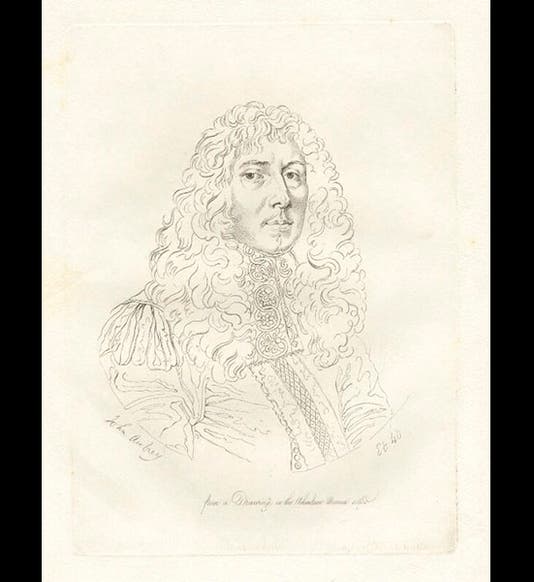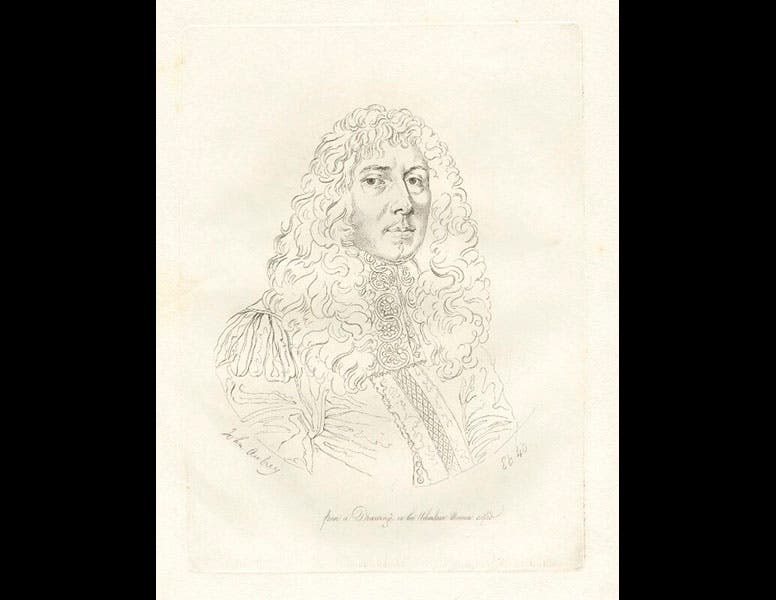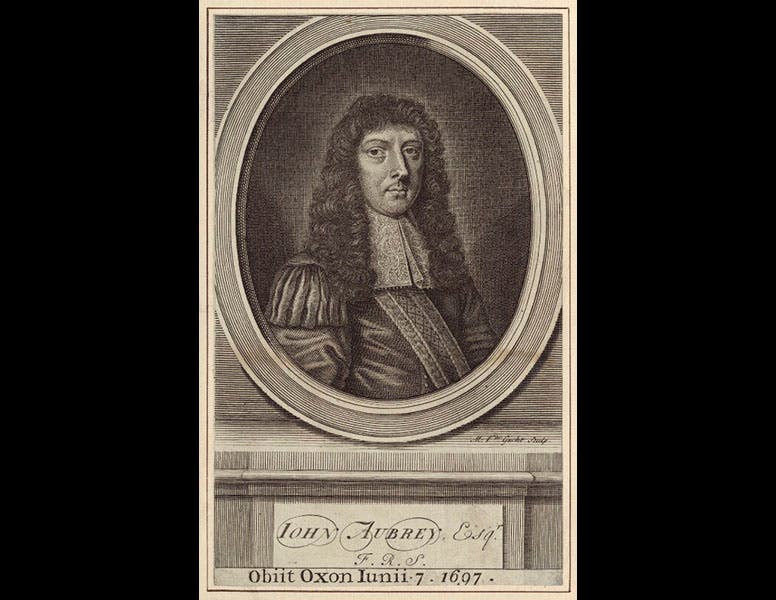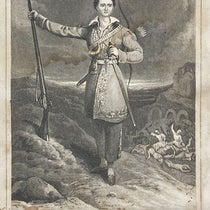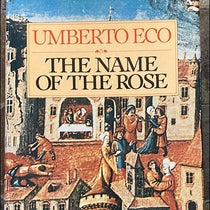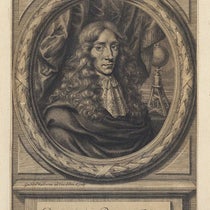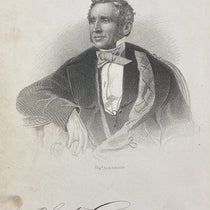Scientist of the Day - John Aubrey
John Aubrey, an English antiquarian and biographer, was born Mar. 12, 1626. Aubrey was a notable archaeologist, making important discoveries about Stonehenge, for example, but he is best known for his Brief Lives, a collection of 426 biographies of his contemporaries and immediate predecessors. The biographical sketches are notable for their freshness and frankness. They were not published in Aubrey's lifetime; indeed, they were never even finished, being just a hodgepodge of notes. When he died, the manuscripts were deposited, bound up in four volumes, in the Ashmolean Museum at Oxford, and they were later transferred to the Bodleian Library, where you may find them today.
Various editors have had a go at the manuscripts to produce printed editions of selected biographies. Until recently, the most complete edition was that of Andrew Clark, which was published in 1898 in two volumes, but Oxford University Press has recently issued a new edition (2015), edited by Kate Bennett, that we have not seen, but which has garnered glowing reviews.
Aubrey had something to say about many individuals that we would now call scientists, including Robert Hooke, William Harvey, Robert Boyle, Thomas Hobbes, and Francis Bacon. It is from Aubrey that we learn that Bacon’s death resulted from a sudden impulse to try to preserve a chicken by packing it with snow, which instead gave Bacon a bad case of pneumonia. Aubrey tells us that Thomas Hobbes discovered geometry by accident at age 40, when he encountered an edition of Euclid’s Elements and for the rest of his life tried to write philosophy like a geometer.
Aubrey could be very descriptive in a few words; of Walter Ralegh, he said, “He was no Slug," and "he was sometimes a Poet, not often." Aubrey was at his best and most puckish when describing physical appearances, and he had a certain fascination with "Eyes." Of Harvey: "he was not tall; but of the lowest stature, round faced, olivaster complexion, little Eie, round, very black, full of spirit," and of Robert Hooke: "He is but of midling stature, something crooked, pale faced, and his face butt little below, but his head is large; his eie full and popping, and not quick; a grey Eie." Aubrey wrote no biography of Isaac Newton, whom he could not stand. Our favorite tidbit is not about a scientist, but concerns the young Will Shakespeare: "His father was a Butcher, and I have been told heretofore by some of the neighbours, that when he was a boy he exercised his father's Trade, but when he kill'd a Calfe he would doe it in a high style, and make a Speech."
Aubrey lost all his fortune and property in lawsuits in the 1660s, and for the last thirty years of his life, he was essentially a pauper, living off the generosity of friends. For this reason, he was never able to afford a commissioned portrait. The only likeness we have was drawn by William Faithorne, and it became the basis for a number of later engravings and etchings (second image). Our favorite was etched by Mary Dawson Turner around 1825 (first image). Mary Turner was the mother-in-law of William Jackson Hooker, the director of Kew Gardens, who was in turn the father of Joseph Dalton Hooker, Charles Darwin’s best friend. Small world, as it often appears to be.
Dr. William B. Ashworth, Jr., Consultant for the History of Science, Linda Hall Library and Associate Professor, Department of History, University of Missouri-Kansas City. Comments or corrections are welcome; please direct to ashworthw@umkc.edu.

